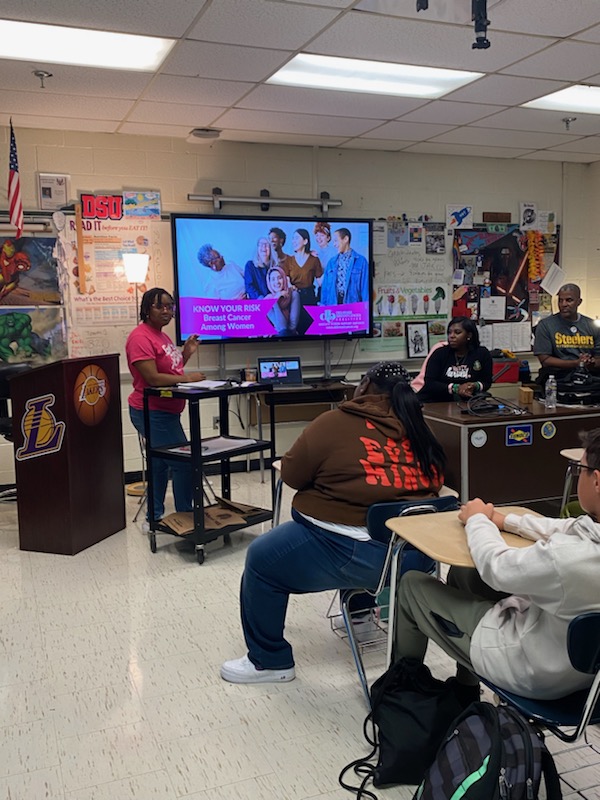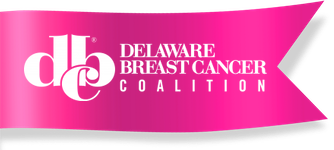The Women’s Health Screening Program managed by the Delaware Breast Cancer Coalition (DBCC), can partner with your organization at no cost to provide breast health presentations, information, resources, and patient navigation services to help cultivate healthier communities. Our staff has worked with corporations, businesses, factories, elderly care facilities, special needs facilities, schools, and more.
Breast Health Presentations
DBCC has the ability to provide breast health education in-person, via Zoom or pre-recorded video catered to fit the audience’s needs. Our breast health presentations teach audiences the basics of breast anatomy, how breast cancer forms, how breast cancer is treated, how to understand their personal risk of breast cancer, and how to reduce their risk of breast cancer.
If you are interested in learning more or scheduling a breast health presentation for your organization, or business please contact:
Lissette Rivera
Women’s Health Program Manager
lrivera@debreastcancer.org
Connie Holdridge
Director of Survivorship
choldridge@debreastcancer.org
What are breasts?
Breasts are mostly made of a collection of fat cells (adipose tissue), lobes, lobules, and milk ducts.
Each lobe is made up of smaller lobules, the gland that produces milk in nursing women. Both lobes and lobules are connected by milk ducts. Milk ducts carry the milk to the nipple.
Sources: https://www.nationalbreastcancer.org/breast-anatomy
https://www.cancer.gov/types/breast/patient/breast-treatment-pdq#_148
https://www.cancer.gov/types/breast/patient/male-breast-treatment-pdq
What is breast cancer?
Breast cancer is a group of diseases in which cells in breast tissue change and divide uncontrolled, typically resulting in a lump or mass. Most breast cancers begin in the lobules (milk glands) or in the ducts that connect the lobules to the nipple.
Source: According to the American Cancer Society’s Breast Cancer Facts & Figures 2019-2020.
Know what is normal for your body.
Changes that women and men should report to their doctor immediately include:
• Lump, hard knot, or thickening
• Swelling, warmth, redness, or darkening
• Change in the size or shape
• Dimpling or puckering of the skin
• Itchy, scaly sore or rash on the nipple
• Pulling in of your nipple or other parts
• Nipple discharge that starts suddenly
• New pain in one spot that does not go away

“First I would like to thank you and The Delaware Breast Cancer Coalition. You’re outreach and breast health is amazing and impactful. Thank you for bringing your energy and your passion about breast cancer awareness to our organization. We all learned so much and the feedback we received was amazing. It’s our goal to do what right for the communities that we serve. And we are glad that the donations are going to those persons who are most in need. ”
– Amtrak HR Business Services.
